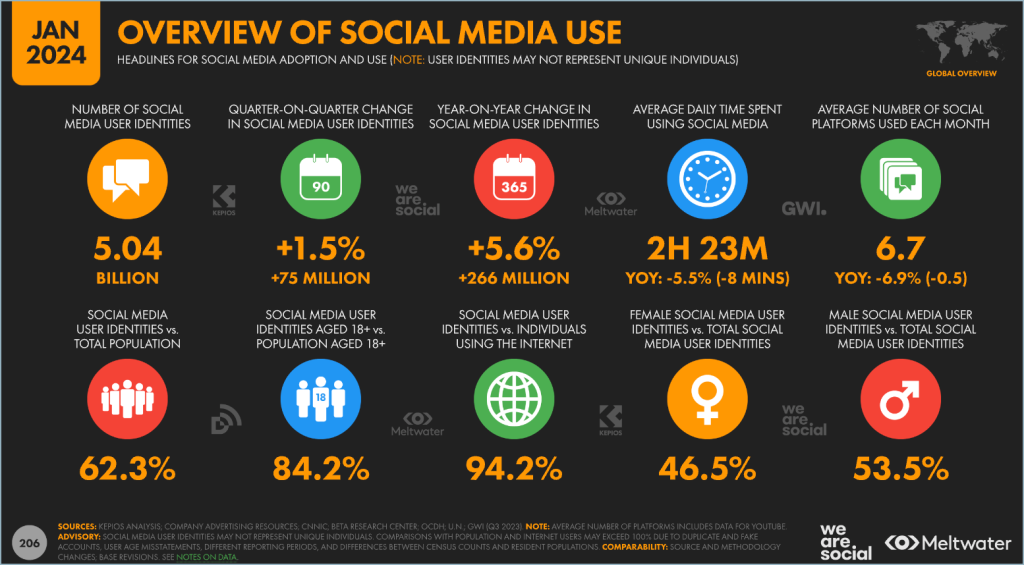With each successive generation, there has been an exponential rise in the expenditure that companies allocate towards their marketing strategies.
Marketing budgets reached their highest in 2021, at 13.2%. And they continue to hold a high percentage today. A study in 2022 also found that 42% of companies are continuing to increase their marketing budget.
But why? What makes marketing, especially in the digital age, such an integral part of a companies plans? In this blog post, we delve into the fundamental aspects of marketing that underscore its significance for businesses
Brand Building:
In a crowded marketplace, a strong brand sets a company apart from its competitors and forms the foundation of its identity. Effective brand building entails crafting a compelling narrative, establishing core values, and consistently communicating them through various channels. By creating a distinct personality and fostering emotional connections with consumers, brands can cultivate loyalty and trust, thereby enhancing their long-term viability. A well-defined brand not only attracts customers but also serves as a beacon of reliability and authenticity in an increasingly sceptical consumer landscape.
Market Research and Analysis:
Understanding the dynamics of the market is imperative for making informed business decisions. Market research involves gathering and analysing data related to consumer preferences, industry trends, competitor strategies, and economic indicators. Through rigorous analysis, companies can identify untapped opportunities, anticipate shifting consumer needs, and refine their product offerings accordingly. By staying attuned to market dynamics, businesses can mitigate risks, capitalize on emerging trends, and maintain a competitive edge in a fast-paced environment.
Customer Relationship Management:
Building and nurturing relationships with customers is essential for fostering loyalty and driving repeat business. Customer Relationship Management (CRM) encompasses strategies and technologies aimed at managing interactions with existing and potential customers. By leveraging CRM tools, companies can personalize communication, track customer interactions, and tailor offerings to individual preferences. Cultivating strong relationships not only enhances customer satisfaction but also generates valuable feedback for product improvement and innovation. Ultimately, investing in CRM fosters long-term customer loyalty and advocacy, which are indispensable assets in sustaining business growth.
Customer Acquisition:
Acquiring new customers is vital for expanding market share and fueling revenue growth. Effective customer acquisition strategies involve identifying target demographics, crafting compelling value propositions, and deploying targeted marketing campaigns across relevant channels. Whether through digital marketing, social media outreach, or traditional advertising, companies must adapt their approach to reach and resonate with prospective customers. By deploying data-driven tactics and measuring key performance indicators, businesses can optimize their customer acquisition efforts and maximize returns on investment.
The Growth of Social Media:
In recent years, the advent and proliferation of social media platforms have revolutionized the marketing landscape, offering companies unprecedented opportunities to engage with consumers on a global scale. With billions of active users across platforms such as Facebook, Instagram, Twitter, LinkedIn, and TikTok, social media has emerged as a powerful tool for brand promotion, customer engagement, and community building.

1. Amplified Reach and Visibility:
Social media platforms provide companies with a vast and diverse audience, enabling them to amplify their reach and increase brand visibility exponentially. By crafting compelling content and leveraging targeted advertising features, businesses can connect with users across demographics, geographies, and interests, thereby expanding their potential customer base and enhancing brand awareness.
2. Real-Time Engagement and Feedback:
One of the defining features of social media is its immediacy, allowing companies to engage with consumers in real-time and solicit instantaneous feedback. Whether through comments, messages, or interactive polls, brands can foster meaningful dialogues with their audience, address concerns promptly, and glean valuable insights into consumer preferences and behaviour. This real-time engagement not only enhances customer satisfaction but also enables companies to adapt and iterate their marketing strategies on the fly.
3. Influencer Marketing and User-Generated Content:
Social media platforms have facilitated the rise of influencer marketing, wherein brands collaborate with influential individuals to promote their products or services to a wider audience. By partnering with relevant influencers who resonate with their target demographic, companies can leverage their credibility and reach to drive brand affinity and consumer trust. Additionally, user-generated content has become a potent marketing tool, as companies encourage customers to create and share content related to their brand, thereby harnessing the power of peer recommendations and social proof.
4. Data-Driven Insights and Analytics:
Social media platforms offer robust analytics tools that provide companies with valuable data and insights into the performance of their marketing efforts. From tracking engagement metrics such as likes, shares, and comments to monitoring audience demographics and behaviour, these analytics empower businesses to measure the effectiveness of their campaigns, optimize their content strategy, and allocate resources more efficiently. By harnessing data-driven insights, companies can refine their social media marketing tactics and achieve greater ROI.
In conclusion, marketing serves as a linchpin for companies seeking to thrive in today’s competitive landscape. From building strong brands to conducting insightful market research, from nurturing customer relationships to acquiring new clientele, the principles of marketing permeate every facet of business operations. By embracing these pillars of marketing excellence, companies can position themselves for sustained success and growth in an ever-evolving marketplace.
If you’re looking to expand your marketing strategy and harness the power of multi-channel marketing, hiring a dedicated apprentice could be the strategic move your company needs. And with 360 Apprenticeships by your side, finding and nurturing top talent has never been easier. Let us help you unlock the full potential of your marketing team and propel your business towards success.
Why Consider Hiring a Multi-Channel Marketing Apprentice?
A multi-channel marketing apprentice brings fresh perspectives, digital fluency, and a hunger for innovation to your marketing team. Once qualified, they are adept at navigating the intricacies of social media, email marketing, content creation, SEO, and other digital channels, enabling your company to reach and resonate with audiences across diverse platforms. By harnessing their creativity, technical skills, and strategic acumen, you can elevate your marketing efforts to new heights and stay ahead of the competition.
How 360 Apprenticeships Can Help:
At 360 Apprenticeships, we specialize in connecting employers with talented apprentices who possess the skills, ambition, and dedication to drive business growth. Our comprehensive recruitment process ensures that you find the perfect match for your company’s needs, whether you’re seeking a multi-channel marketing apprentice or talent in other areas of your organization.
